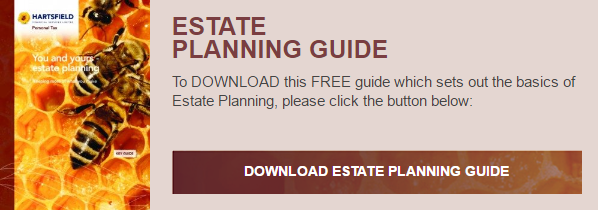Estate planning is the process of anticipating and arranging your estate during your lifetime, for its management and disposal once you die.
It is what you do in the course of your lifetime to make the best use of your assets. This will ensure that you leave the most amount you can, and pay the minimum required in estate taxes.
In a way it is an extension of retirement planning, which is the financial planning you do to ensure your income meets your retirement needs. When planning your estate, though, you won’t be around to see the benefits of the decisions you made. However, it will give you peace of mind during your lifetime.
How to go about arranging your estate
One very important step is to make a will. Don’t assume, as many do, that your estate will automatically pass to your nearest and dearest.
If you are not married or in a civil partnership, your partner won’t automatically inherit. If you are separated, but not divorced, your estranged spouse will inherit. And, even your estate does go to your loved ones eventually, if you had made a will there would be no need for them to wait so long.
In the face of this, it is incredible that some 60 per cent of the UK adult population haven’t made a will. Most of these are among younger people, but 35 per cent of those approaching or beyond retirement age also have no will.
A second area of estate planning is reducing your inheritance tax liability. Any asset which is deemed liable for inheritance tax, is taxed at 40%. The current inheritance tax (IHT) threshold is £325,000 per person. If your estate includes your home, you get an additional allowance, which is rising from £100,000 per person to £125,000 this tax year.
You can reduce the liability by making a gift of money. Depending on how soon you die after the gift is made will determine whether it is liable to inheritance tax, and at what rate.
Putting money into a trust takes that capital sum out of your estate and so becomes exempt from taxes. At the same time, you are making an investment because you are entitled to take any interest as income.
Any and all of these tools are valuable for estate planning.
What happens if you do nothing
Estate planning starts with making a will and there have been many high profile cases of what happens when people don’t make a will. For example, the popstar Prince.
Prince died in April 2016 and there were claims on his estate from his sister and six half-siblings, among others. In the following July, a Minnesota judge overseeing Prince’s estate narrowed down the wide pool of potential heirs, ruling out nearly 30 claimants while ordering genetic testing for six purported family members.
Your accounts may not add up to the millions Prince left, but these sort of disputes go on every day in and out of court.
In the same way, not having estate trusts exposes more of your wealth to inheritance tax. The Treasury is happy to take a cool 40% of anything above the threshold.
For help and advice with estate planning services – including arranging your estate, making a will, inheritance tax, making a trust plan, and gifting – please get in touch with the Hartsfield team.

 Investment
Investment Trustee
Trustee

